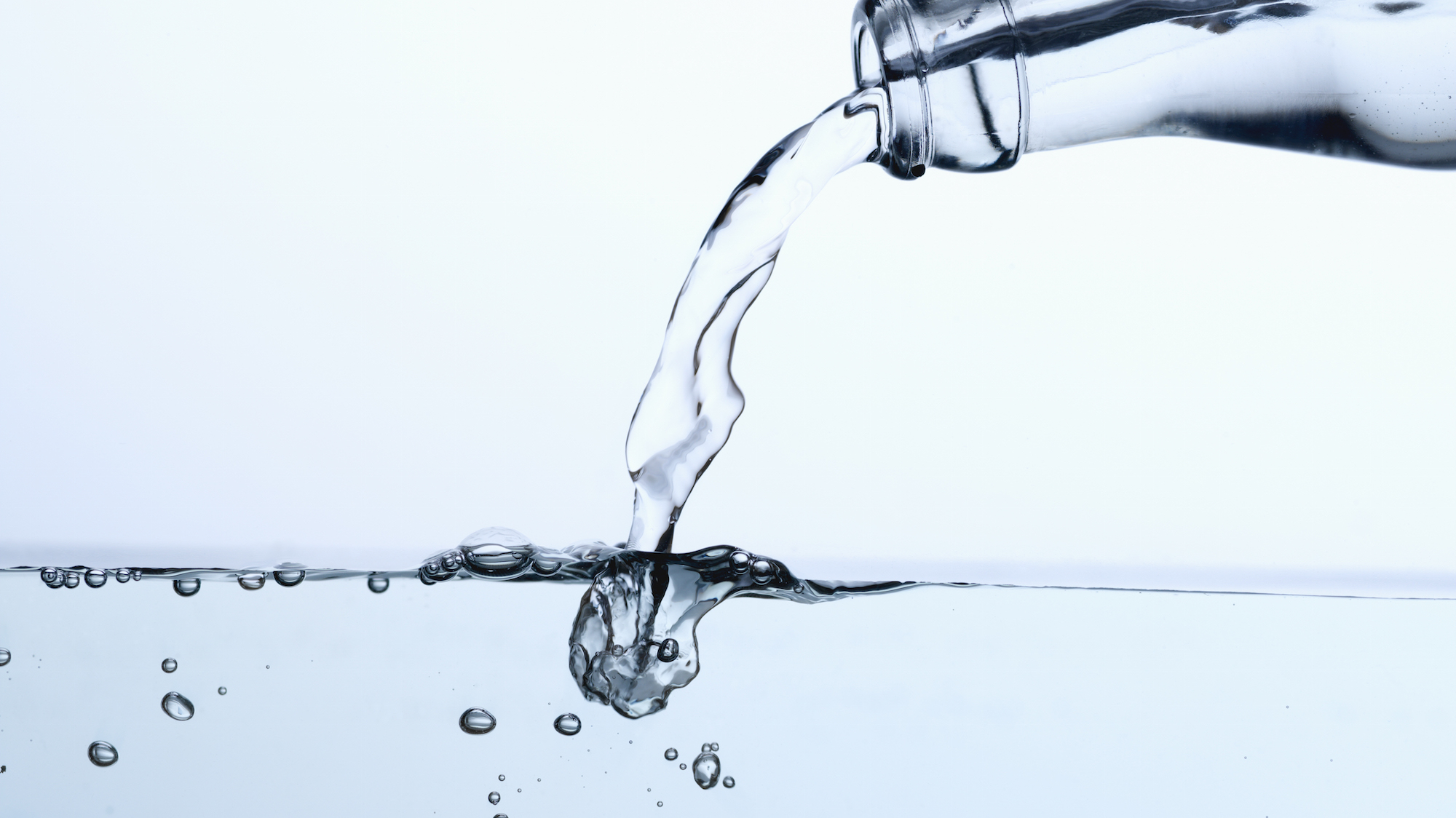We now finally know the answer to the question ‘Does water go bad?’
It's a little complicated though

Celebrity news, beauty, fashion advice, and fascinating features, delivered straight to your inbox!
You are now subscribed
Your newsletter sign-up was successful
It's a little complicated though
Words by Maxine Builder
From the editors of Extra Crispy
If you’ve ever left a bottle of water in a hot car for a few hours, you know that the taste of water can change—sometimes into something that’s kind of nasty and plastic-y. But does water ever go bad? The short answer is not really. In the United States, the Food and Drug Administration is responsible for regulating the safety of bottled water, and as FDA regulators explained in 2002, ‘Bottled water is considered to have an indefinite safety shelf life,’ if it is bottled according to current practices and ‘stored in an unopened, properly sealed container.’ That’s why the FDA does not technically require expiration dates on bottles of water.
Most bottles of water, however, do have expiration dates stamped on them, which might lead you to believe that water does go bad. But that’s just a packaging standardisation, as required by one state: New Jersey. As Matt Soniak explains for Mental Floss, ‘A 1987 New Jersey state law required all food products sold there to display an expiration date of two years or less from the date of manufacture,’ even if the food was indefinitely shelf stable, like water. So rather than make bottles of water just for New Jersey, manufacturers of water bottles just started stamping all their bottles with a two-year expiration date.
Even though you can technically drink an unopened bottle of water long after the two-year expiration date, that doesn’t mean that water is going to taste great. That weird taste you get when you sip on water that’s been sitting out for too long is due to a chemical change. Over time, carbon dioxide will dissolve in water and form carbonic acid, which will give water that lightly acidic, unpleasant taste. It’s not necessarily going to make you sick, though. It just doesn’t taste good.
If you are planning on storing huge vats of water bottles and drinking them in five or ten years, remember that plastic isn’t impermeable, and over time, there is a risk that algae or bacteria can seep in and grow on the water—especially if you’re storing the bottles in a bright, sunny area. That’s why Zane Satterfield, an engineer scientist with the National Environmental Services Center at West Virginia University, told TIME that, ‘Most experts will tell you tap water has a shelf-life of six months.’ To be safe, replace those stores of unopened water bottles once a year or so, and store them out of direct sunlight, like your basement or homemade bunker.
Celebrity news, beauty, fashion advice, and fascinating features, delivered straight to your inbox!
And if you’re in really doubt about the safety of your bottled drinking water during the apocalypse, the US Environmental Protection Agency recommends either boiling your water to kill off any bacteria before drinking it or treating it with a drop of bleach. Or, assuming you’re not in the midst of fighting for your life, you could just get a new bottle from the store.
The leading destination for fashion, beauty, shopping and finger-on-the-pulse views on the latest issues. Marie Claire's travel content helps you delight in discovering new destinations around the globe, offering a unique – and sometimes unchartered – travel experience. From new hotel openings to the destinations tipped to take over our travel calendars, this iconic name has it covered.